Stories of Impact

Healing and hope for child labor survivors in Nepal
Written by Silvia Mera.
It is a sunny early afternoon in Kathmandu, Nepal. The streets, though not bustling, hum with the occasional passing motorbike and the cheerful laughter of children walking hand in hand with their mothers. As I ascend the stairs to the top floor of “Hamro Ghar” – the home for child labor survivors managed by the Nepal GoodWeave Foundation – a sense of hope fills the air.
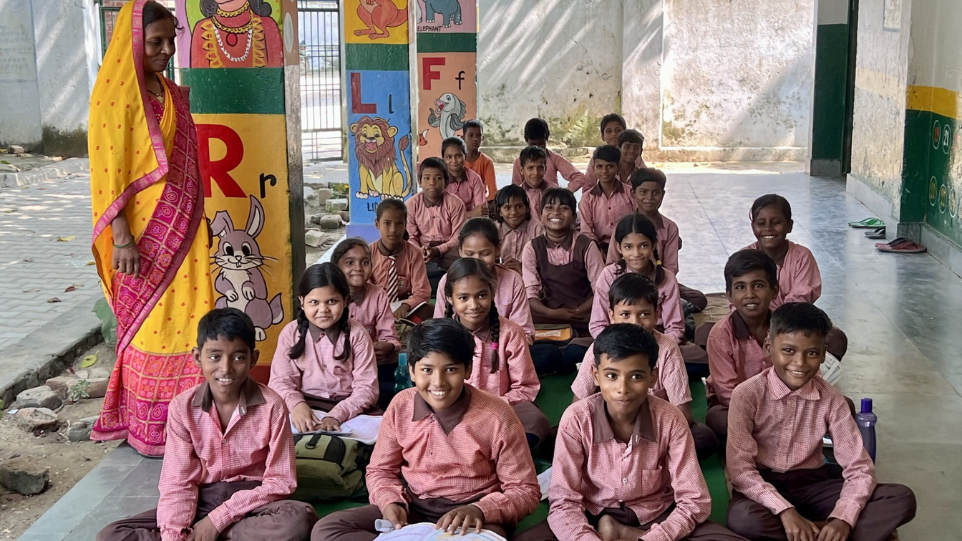
Primary school in GoodWeave-supported Child Friendly Community wins best school award
The primary government school of Gobardhanpur in Mirzapur, India was recently named best school by the District Magistrate for excelling in student enrollment and retention, as well as overall management for the 2022-2023 school year.
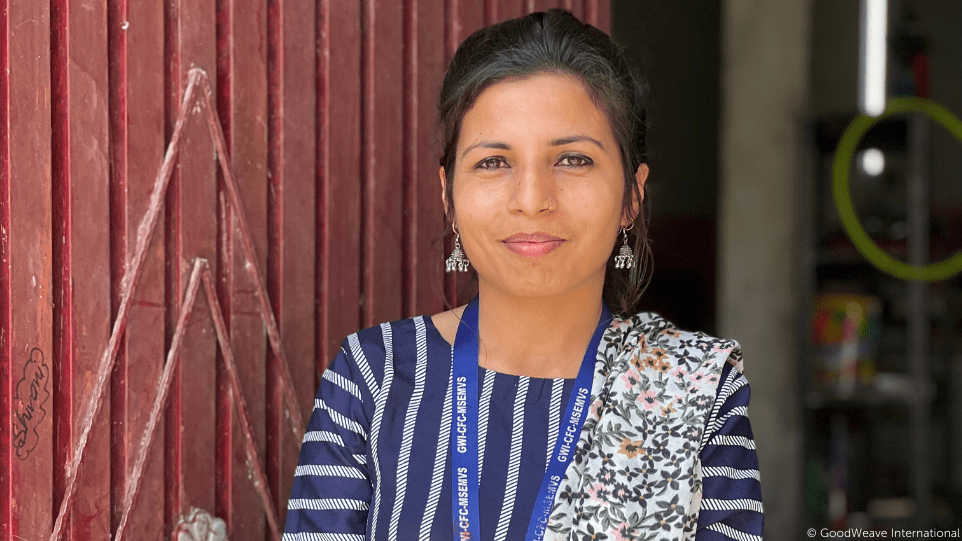
Shivani: Championing education and independence for vulnerable children
Shivani is a driving force behind the positive change created by a GoodWeave-supported Child Friendly Community in Haryana, India. As a passionate community-based facilitator in a region that is home to a large population of migrant workers employed in nearby carpet factories and workshops, Shivani focuses on how to ensure rights and protections for these individuals.
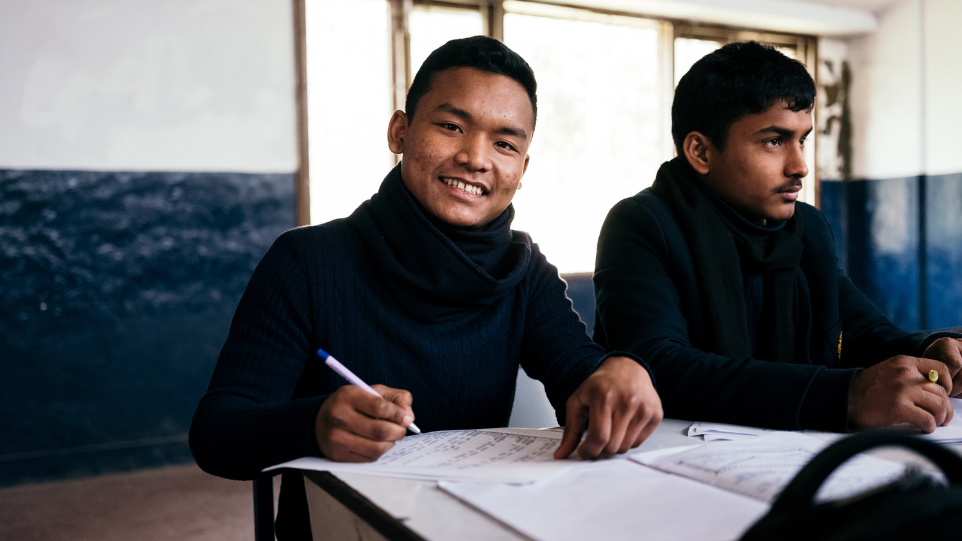
Meet Aakash: overcoming child labor and loss with GoodWeave’s support
Aakash’s story is all too common in his home country of Nepal. He is from Makawanpur district, where there is discrimination against the native Chepang people who rarely have access to basic needs, such as education and sustainable livelihoods.
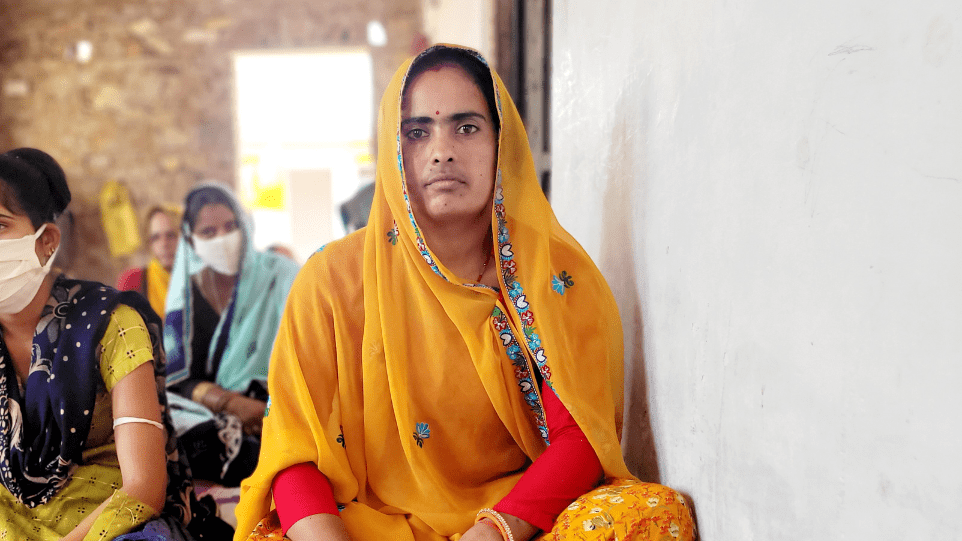
Empowering adult women to enter the “Open School” program in India
Sanjana, 27, lives in a GoodWeave Child Friendly Community in rural Rajasthan, India. She wanted to complete her education when she was younger, but early marriage, the birth of three children, and no support from her husband and in-laws shattered her dream.
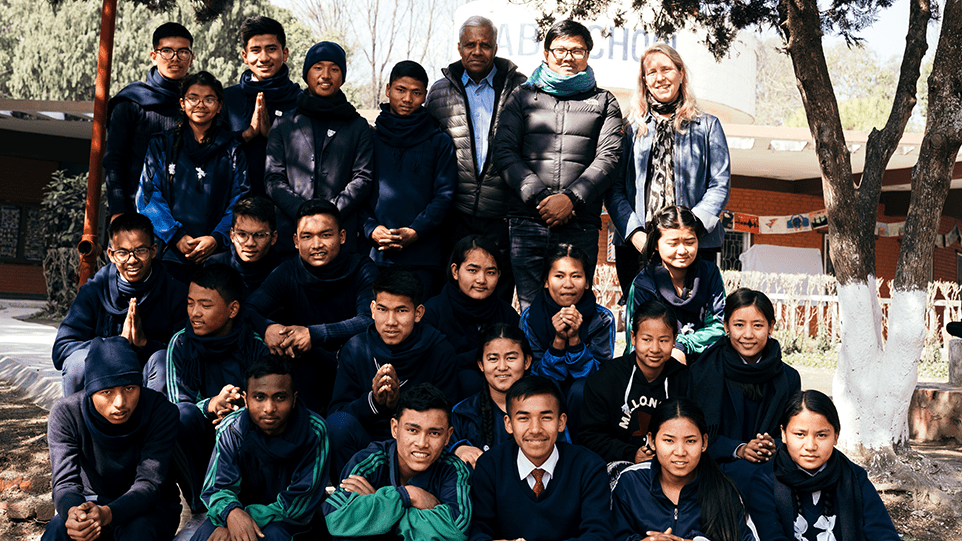
Maya: Overcoming adversity and making a new life with GoodWeave’s support
GoodWeave’s holistic program to stop child labor in global supply chains integrates a unique focus on the rehabilitation of child labor survivors like Maya, now an ambitious 12th grader at the prestigious Laboratory (Lab) School in Kathmandu – one of GoodWeave’s partner schools.
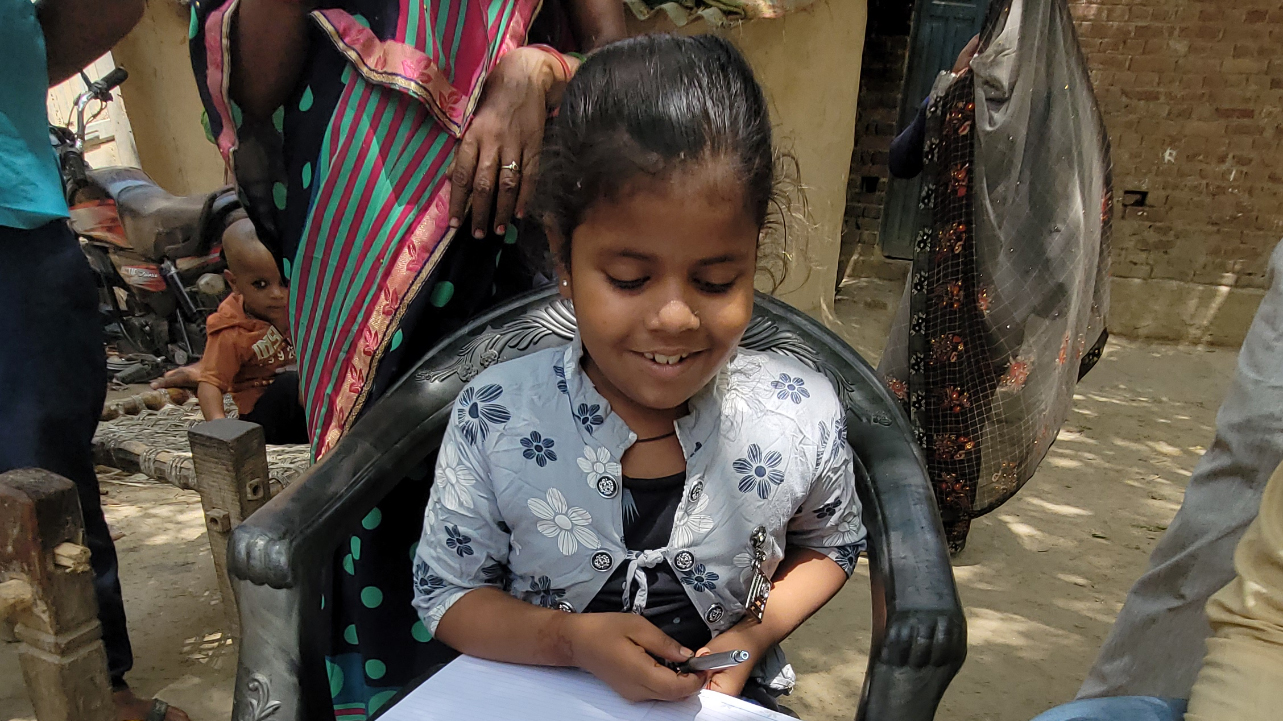
Mahak stays on track with education through GoodWeave supported e-learning
Mahak, a nine-year-old girl from a rural village in Uttar Pradesh, India confidently writes her name in both Hindi and English. Once she accomplishes the task, she smiles proudly.
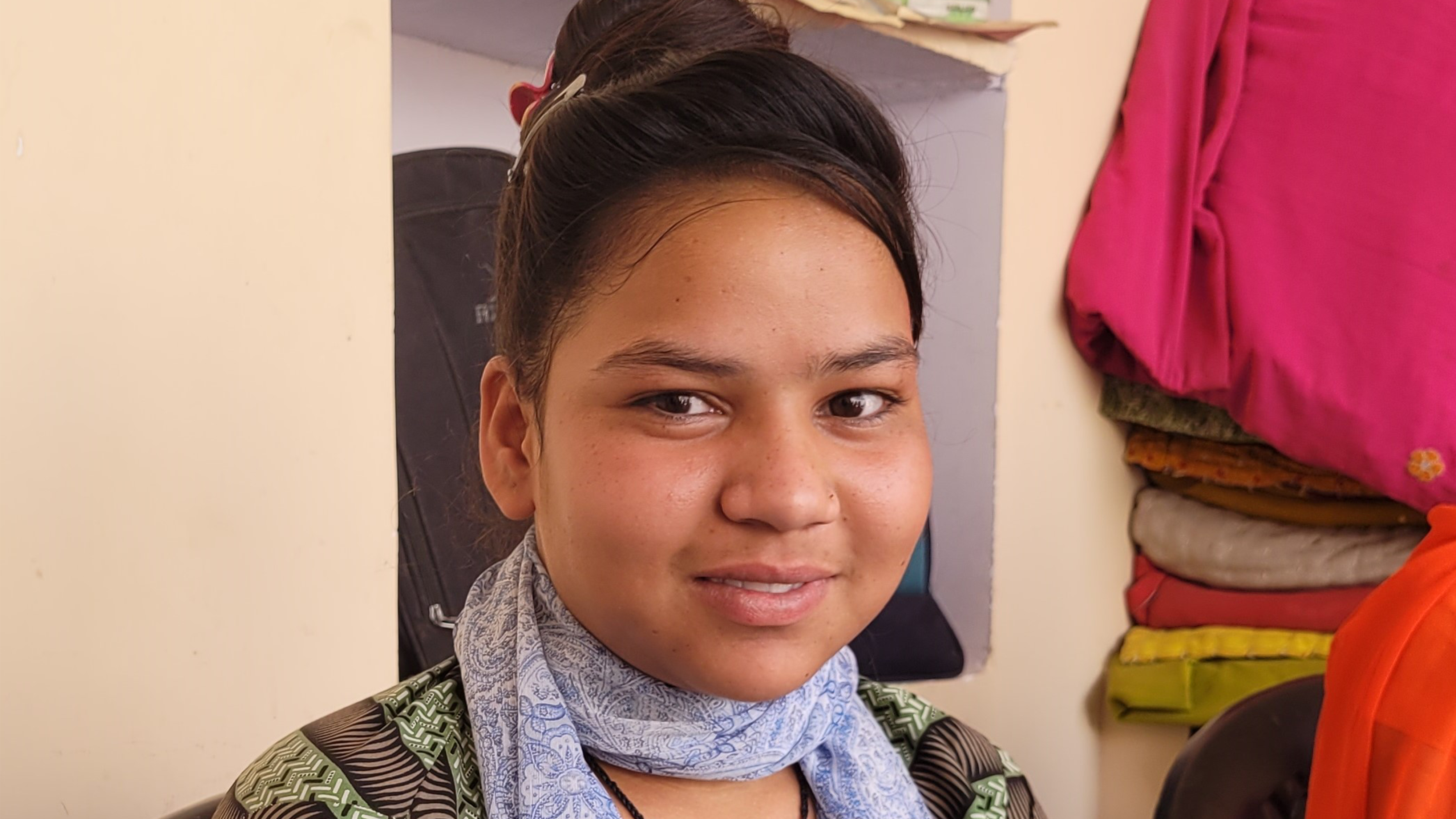
Radhika: Back in school and learning the tools to become independent
Radhika 14, lives in a home-based carpet weaving community in Jaipur, India. Despite the fact she enjoyed being a student, she was forced to drop out of school, because her father could no longer afford the school fees after losing his job at a factory in Delhi during the COVID-19 pandemic. Radhika’s village is one of the 55 GoodWeave Child Friendly Communities in north India, and Seema, a GoodWeave community facilitator, noticed that Radhika was at-risk of child labor.
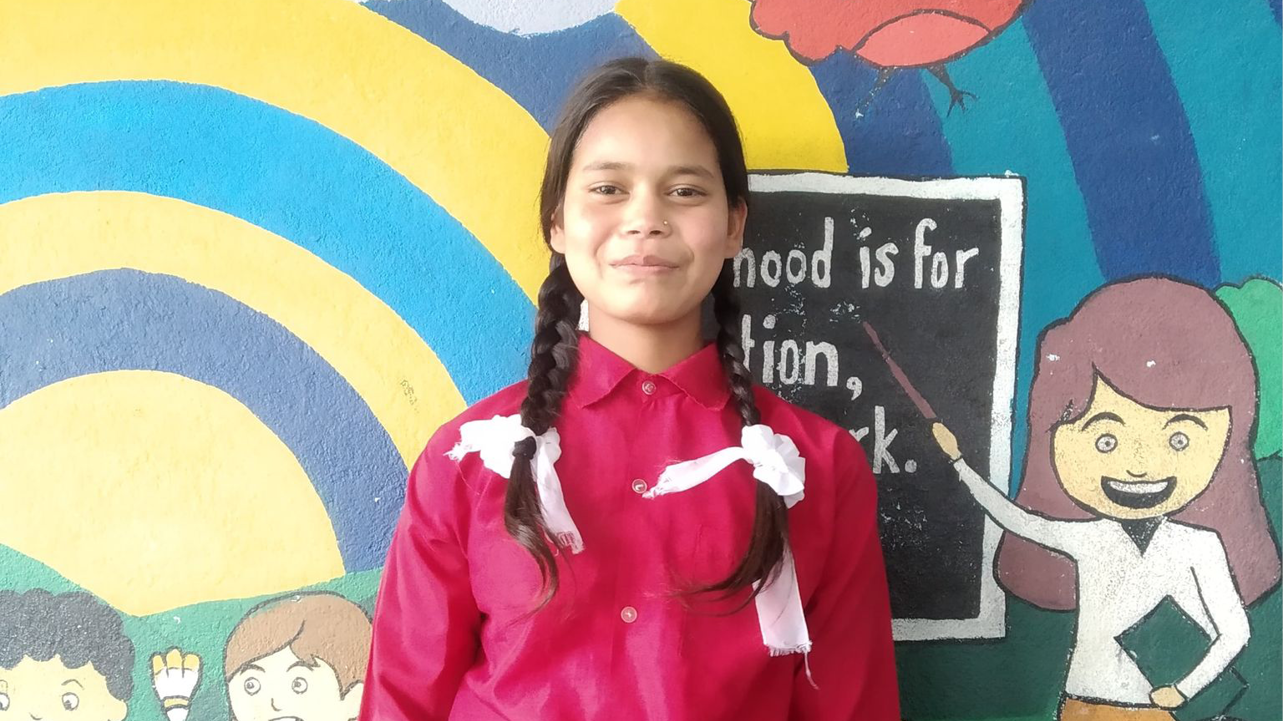
Laxmi: Happily back in school after COVID-19 induced poverty and exploitation
When Laxmi was just four years old, her father died and her mother remarried, leaving Laxmi and her younger brother in the care of her aunt. When the COVID-19 pandemic hit, Laxmi’s aunt could no longer support them, so Laxmi went to work in a brick kiln with her cousin to help her family make ends meet.
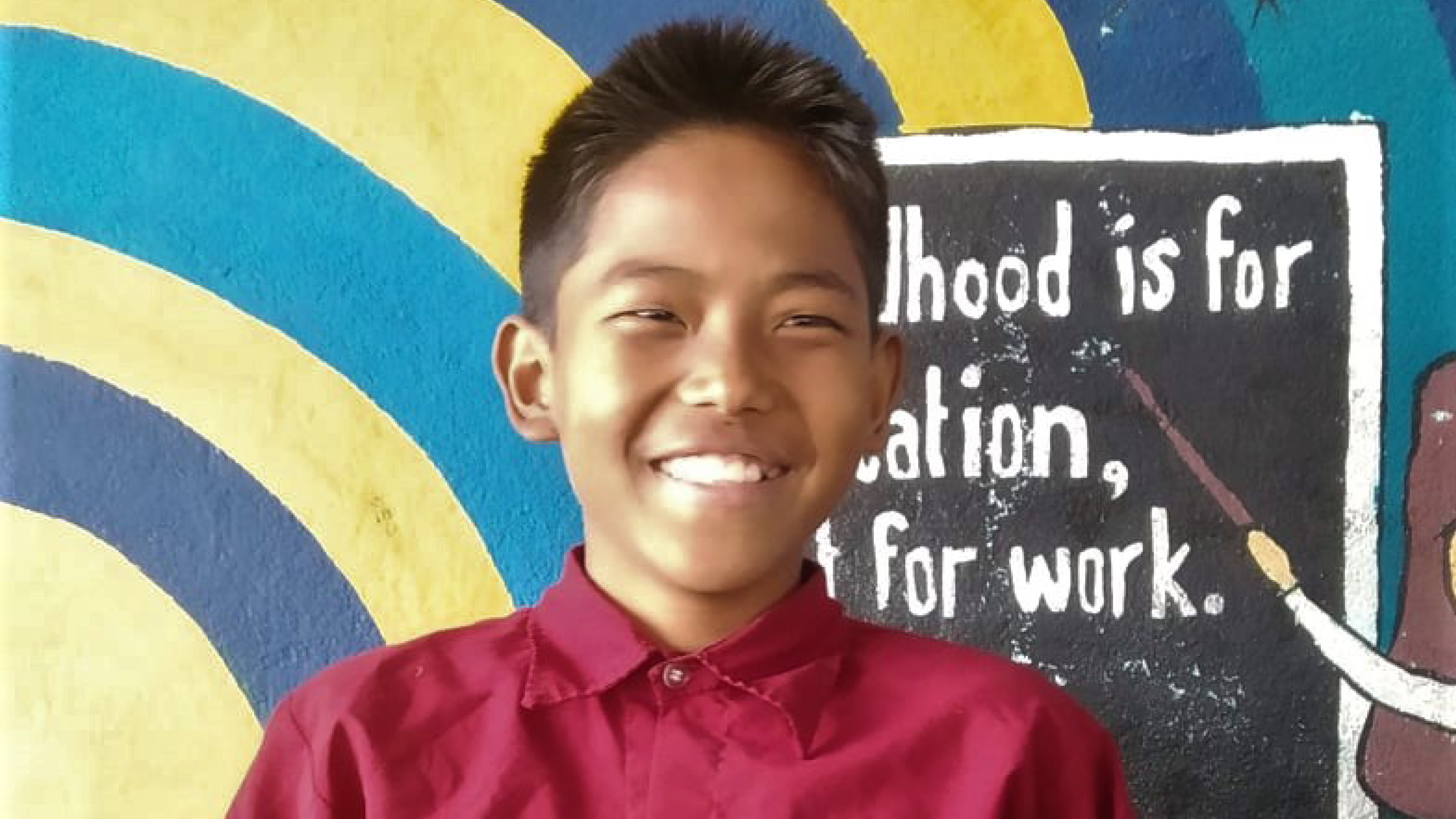
Kabir: The GoodWeave System at work
When Kabir was a child, his father abandoned his family for another woman. When his mother remarried, his stepfather rejected him – first sending him to live with his maternal uncle in the same village and then, when he was 13-years-old, he sent him to Kathmandu.
